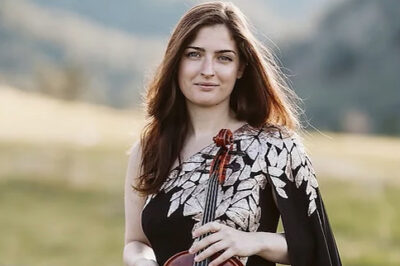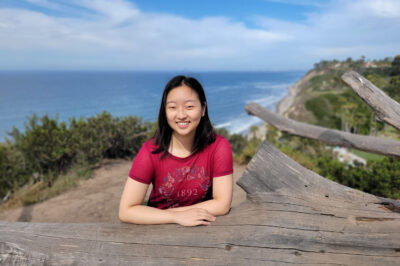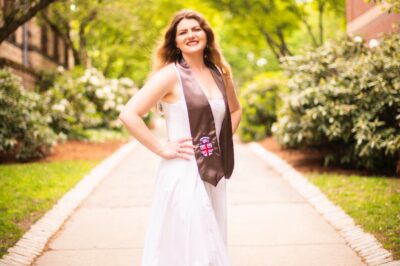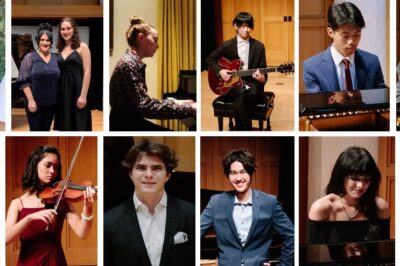Meleeah Abkarian
Meleeah Abkarian studied voice at PCM with Mariné Ter-Kazaryan and graduated in 2010. Since then, she has received her Bachelor and Master of Music in Vocal Performance and has performed in several international opera programs. She now works as a voice and piano instructor at 88 Keys Music Academy in Arcadia. Below, Meleeah shares about her career and experiences that have inspired her as a musician.
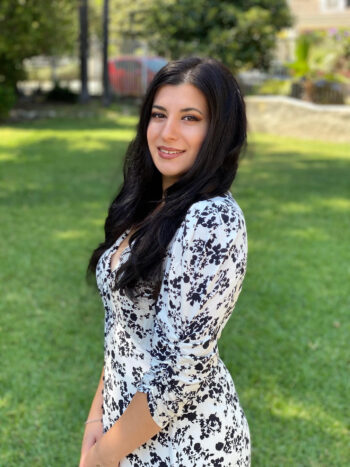
PCM: What have you been up to since leaving PCM?
MA: Since leaving PCM, I have gone on to receive my Master’s in Music degree in Vocal Performance from California State University, Northridge. During my studies, I have been privileged to participate and perform in several opera programs, including Franco-American Vocal Academy in France, CSU Summer Arts in Germany, and the Vancouver International Song Institute. I am currently teaching voice and piano at 88 Keys Music Academy, while continuing to work on arias for upcoming performances and auditions.
PCM: Your bio on the 88 Keys website talks about how you include Armenian songs in your repertoire. Can you share why this is important to you?
MA: My Armenian heritage and culture is an essential part of who I am as a person, and to include Armenian music in my repertoire has always been instinctive. It is a blessing to be able to perform and share the music of my culture, and, by doing so, keep the Armenian culture alive through the performance of its music.
PCM: What’s the age range of your students at 88 keys?
MA: I teach a wide range of ages, from about four/five years of age to adults over the age of fifty.
PCM: Can you share a highlight from one of the international opera programs you participated in? Why were these programs important to you – personally, professionally, musically?
MA: I have many wonderful experiences from all the programs I’ve been privileged to participate in – from performing in medieval castles to master classes with some of the industry’s most renowned coaches and professionals.
There is one common takeaway for me that has been fundamental in my development as a musician: you must be prepared for anything and everything. Not only do you have to be prepared with basic things – making sure the repertoire is learned, memorized, translated, and technically sound – but you must also be prepared emotionally and mentally and completely open to the rigorous demands of this industry. These opera programs are so important because they offer insight into what it takes to be a successful artist and whether you are well equipped for the journey.
PCM: Has there been a particular piece of music or operatic role that really spoke to you?
MA: The piece of music (or pieces) that has stood out to me is the song cycle Siete canciones populares españolas by Manuel de Falla. I became interested in Spanish repertoire later on, just before starting my master’s degree. Later, while learning Siete canciones for my graduate recital, I fell in love with the songs/style. It was pure fun to perform, especially doing all seven pieces in the song cycle. I also performed them with a guitar quartet, which was a truly enjoyable and unique experience.
PCM: What is your favorite memory at PCM?
MA: I have many fond memories at PCM. My greatest blessing was beginning operatic training with my teacher, Mariné Ter-Kazaryan, when I really began to delve into repertoire and technique. Also, being able to participate in my first recital at PCM performing an aria for the first time was probably one of the most thrilling and exciting moments for me.
PCM: Is there a piece of advice that Ms. Ter-Kazaryan shared with you that you would like to share with others?
MA: I am so grateful to Ms. Ter-Kazaryan. She not only instilled in me a solid foundation of vocal technique, she also inspired and encouraged me to keep pursuing music. One piece of advice from her that has resonated with me is to always have confidence in your ability. Attaining good technique is important but having confidence in one’s ability is essential as a performer.
PCM: What are some of your goals for the future?
MA: My goal for the future is to continue being involved in music, whether it’s teaching, performing, or both. Music is and always will be a part of who I am, and I am blessed to have the opportunity and ability to be on this journey of music.
PCM: What is the most valuable thing you have learned from studying music?
MA: You are constantly learning and growing as a musician, and I think that is the most valuable thing I have taken away from this journey. The learning never ends, and it is important to be patient and open.
